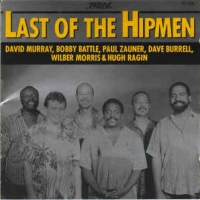Loudness wars coming to an end
We've talked about the sonic compromises inherent in making recordings 'for radio'.
Here's the case some things may be changing. Or do you have to buy vinyl to get a decent dynamic range from chart material?
Here's the case some things may be changing. Or do you have to buy vinyl to get a decent dynamic range from chart material?

Comments
The message is getting through, there has been some good publicity as mentioned in the article. Also bands such as Elbow are fully signed up which helps, you can see the 'turn it up' logo on the back of their record sleeves.
I think things won't change anytime soon, not in a significant way at least, but the awareness that people would like better mastering is spreading.
It's an oddity that audiophiles who spend so much on gear (ie - all of us) tend - on the whole - to often overlook the mastering of a recording as by far the greatest arbiter of sound quality. We can do something about this, but progress is slow - but our voices are being heard. Oftentimes, high quality or niche interest music is recorded very well indeed so we can content ourselves with this. However, this doesn't get the revolution rolling...
That's not always the case, but the flipside is that niche music does more often get put out with a more realistic dynamic range.
This afternoon, I played @Jim my 24/88.2 AIFF of Charles Lloyd's Mirror, his album from last year. As I think he'll agree, it is absolutely stunning, putting so-called 'audiophile' recordings to shame. The Redbook will be almost as good, I'm sure, simply because it's an ECM release and they take a lot of care.
I also have a load of simple jazz recordings which haven't been messed with. I think the fall of the 'big' record industry is a great thing. Musician-owned and independent labels are putting out great digital recordings brilliant in their simplicity.
And maybe it's because so much of the music I listen to hasn't been f***** up by the record industry that I'm not using vinyl.
Who knows, maybe I'll experience it here one day... ;-p
Also I hadn't realised that there were greater
Can I go back to basics? Why has post production compression become such a normality? I understand the reason for some compression for listening in cars, and in clubs. And with very dynamic instruments (eg drum kits) i've found compression is essential during mix down (or may be the drummers I know are crap...!)
But it's not clear to me why so much compression is used (10dB...! Blimey Charlie). In any event, radio stations and clubs probably compress everything again at their end anyway. I can only imagine that there's been a race to the bottom because it's what people have become accustomed to, and increasingly so. Folks have come to 'expect' their music to sound a particular way.
When I say "people" obviously I mean tabloid-reading skytv-watching pseudo-crim' ibiza-holidaying dullards. Not us. Obviously.
Bastards.
The execs should realise that broadcasters can manipulate the signal any which way they want, and that their job is to provide the best quality (which means the least messing) possible. They simply dont need to compress so heavily.
Ie simply rolling off the highest peaks to make the overall recording useable, as opposed to crunching the whole thing up into a handful of dBs as PAC describes.
And thanks for fleshing out the figures - meat of the sandwich and all that...
I drew the distinction between compression and limiting (and agreed - it's a spectrum) to frame them in terms of their different purposes: compression for loudness and; limiting for making recordings usable (eg in the case of vinyl to avoid the problems that you describe).
I guess I'm just restating what's been said above. I'm good at the bleeding obvious mind.
An appropriate amount of dynamic compression is absolutely necessary with most recordings, it gives an appropriate sense of dynamic 'perspective' and scale. But when it is used to equalise the finished piece to an artificially loud (and often distorted) level then it gets in the way of believability, rather than helping the listener to suspend disbelief.
Some mastering engineers do this beautifully, often the best examples are slightly older recordings. For instance, listen to George Massenburgs work with Lyle Lovett on 'Pontiac', and 'Joshua Judges Ruth'. He now runs his own firm making parametric equalizers and dynamic range controllers, as well as teaching at various universities as a professor of recording arts and sciences. There is a list of people he worked with here, all names that care about their SQ.